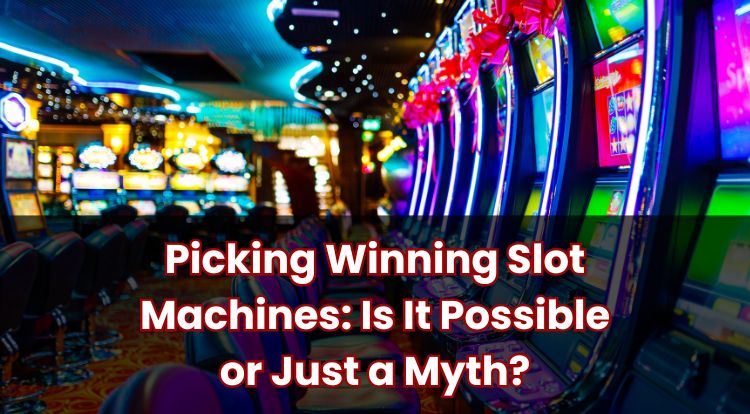Slot Machine Outcomes: Will It Hit Again After a Jackpot?
Slot machines are a favourite in both online and land-based casinos, and one question that often arises is whether a game is likely to pay out again shortly after a big win. You might have heard people describe machines as being “hot” or “cold,” or suggest that a recent jackpot influences what happens next.
In this blog post, we’ll explore how slot outcomes are determined, the role of Random Number Generators (RNGs), and what terms like volatility and Return to Player (RTP) actually mean. We’ll also consider why some players believe a machine is “due” a win, and whether this idea has any basis.
Keep reading to find out more.
Do Slot Machines Pay Out Again After a Big Win?
Each spin on a slot machine is independent of the last. A jackpot does not affect the likelihood of the next spin resulting in a payout. The game does not track previous outcomes or alter the chances in response.
It is common to assume that a big payout will be followed by a quiet period, or that another win is unlikely for some time. In reality, the outcome is determined at the moment you press spin by the machine’s RNG. That system does not reference previous results.
There is no built-in sequence that guarantees another large payout will, or will not, follow a jackpot. Any allowed result can appear on any spin.
If that independence feels counterintuitive, the next section explains how the technology makes it possible.
How Slot Machine Random Number Generators Really Work
Modern slots use an RNG. This is a computer programme that cycles through numbers many times per second, even when no one is playing. When a player presses spin, the RNG selects the numbers in that instant and the game maps them to specific reel positions to decide the symbols they see.
Because the RNG is always moving and does not store a record of past spins, yesterday’s jackpot and the last two minutes of near-misses have no bearing on the next outcome. What a player gets is the result of that exact moment’s numbers, nothing else.
To protect players, RNGs and game maths are tested by independent laboratories and must meet strict standards before they are approved for use in UK-licensed casinos. These checks confirm that results are statistically random and that the published game information matches the way the slot behaves.
RNGs explain why results cannot be predicted. Design choices also shape how a game plays, which is where volatility and RTP come in.
Understanding Volatility and Return to Player (RTP)
Volatility and RTP describe the typical behaviour of a slot over many plays, not the outcomes of a single session.
Volatility relates to the spread of payouts. High volatility games tend to deliver fewer, larger prizes, which may result in longer periods without significant wins. On the opposite end, low volatility games generally produce smaller wins more frequently. Both types may appeal to different preferences, depending on how you like to play.
RTP is the theoretical percentage of total wagers that a slot pays back to players, on average, over a very large number of spins. A game with a 96% RTP is designed so that, across many plays by many users, it returns about £96 for every £100 wagered. Two slots can share the same RTP yet feel very different if one has high volatility and the other low. One may provide bigger wins less often, while the other distributes smaller wins more regularly.
Neither measure forecasts your individual results. They are intended as indicators of the game’s structure. With this in mind, it is easier to see why people sometimes perceive patterns during short bursts of play, leading to the belief that a machine is “due”.
Why Some Players Think a Machine Is “Due” to Win
The idea that a slot is “due” often arises because people expect balance in random events. If a machine has not paid much recently, it might seem that a larger payout is imminent. This is a common misunderstanding known as the gambler’s fallacy.
It is important to remember that slot machines operate entirely on RNGs, which ensure that every spin is completely random and independent of previous results. This means that no outcome can be predicted or guaranteed, regardless of what has happened before. The machine does not keep any memory of past spins, so a quiet period does not increase the chance of a bigger payout on the next spin.
A useful comparison is a fair coin toss: getting heads several times in a row does not change the probability of heads on the next toss. The same principle applies to slot spins, where every result is decided afresh.
Recognising this randomness helps put winning and losing streaks into perspective. These runs happen naturally and are part of how chance works, but they do not signal that any specific outcome is due to occur.
If you choose to play, it is advisable to do so within your means and set clear limits on time and money spent. For help or advice on gambling, organisations such as GamCare and BeGambleAware offer support and information.
Play Slots Online at Red Casino
If you’re looking to enjoy online slots in a fully regulated environment, we’ve got a wide variety at Red Casino to suit a range of different tastes. As a site licensed by the UK Gambling Commission (UKGC), we adhere to strict standards to ensure fairness and transparency.
On our slot pages, you’ll find detailed information about each game’s features, including volatility and RTP, helping you pick the style that fits what you’re after. From classic three-reel favourites to modern titles with exciting bonus rounds, there’s something for everyone.
We also offer practical tools to support your play, such as options to set deposit limits and time reminders, alongside easy access to assistance if you ever need it.
If this sounds like what you’re after, you’re welcome to create an account with us at Red Casino, add some funds, and explore our slot games at your own pace.
**The information provided in this blog is intended for educational purposes and should not be construed as betting advice or a guarantee of success. Always gamble responsibly.




